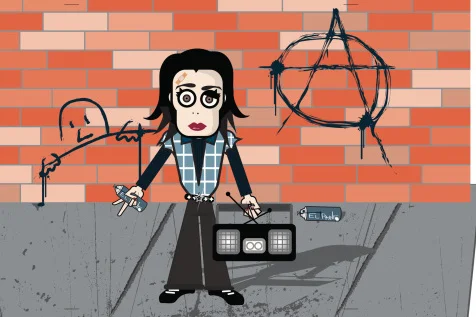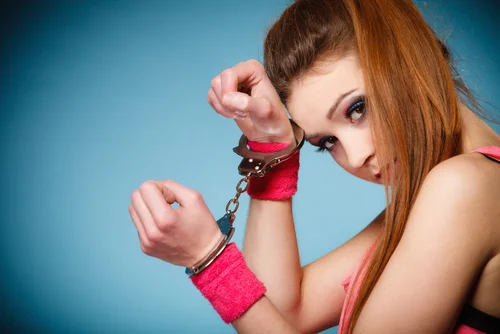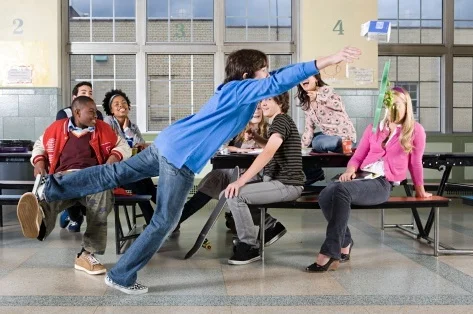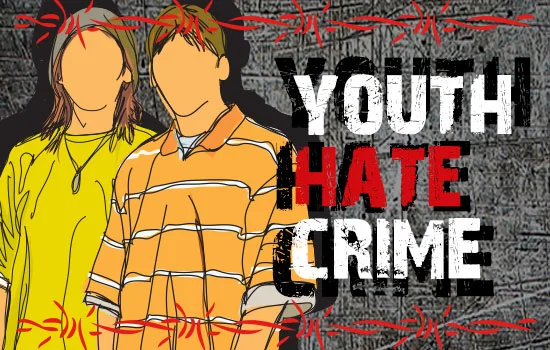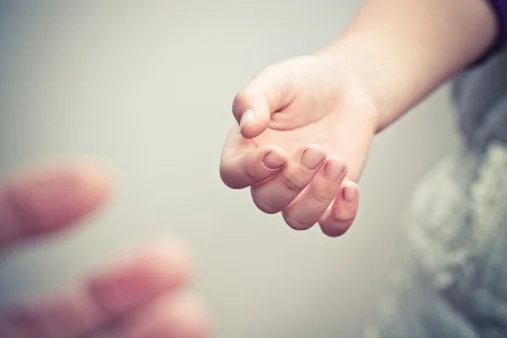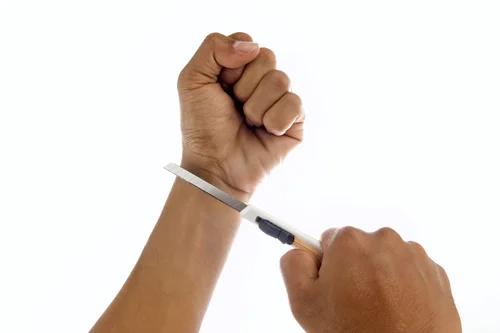+1 845 259 2974 (11 a.m to 7 p.m CST)
Poverty: Key Factor Contributing To High Juvenile Delinquency Rates
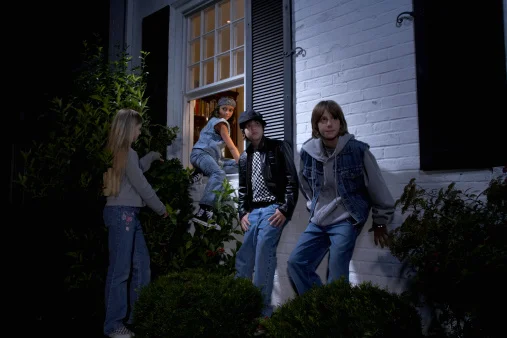
Poverty and teenage crime are closely linked. This is not an excuse for bad behaviour. It is an explanation. Understanding this link is the first step to finding solutions. When a young person commits a crime, people often ask, "Why did they do that?" The easy answer is to call them a "bad kid." But the real answer is often more complicated. It involves a lack of money, a lack of opportunity, and a lot of stress. This article breaks down how poverty leads young people into trouble. It looks at the problem from different angles to show why this is such a difficult cycle to break.
What Poverty Really Feels Like
Poverty is more than just having little money. It is a constant state of worry and insecurity. It affects the mind and the body every single day. For a child growing up in this situation, it can feel like the whole world is against them.
- Basic Needs: Imagine worrying about food, heat, or having a safe place to live. For many families, this is a daily reality. A child cannot focus on school if they are hungry or cold. Think about trying to learn maths when your stomach is empty. Think about trying to sleep in a cold, damp room. These basic struggles make it very hard to succeed in other parts of life. When a child falls behind in school because of these problems, they can feel stupid and frustrated. This frustration can turn into anger.
- Stress at Home: Financial problems cause huge stress for parents. This stress can lead to arguments and a tense home environment. Children feel this stress deeply. A parent who is worried about paying the rent may be short-tempered. They may not have the energy to help with homework or ask about their child's day. The home should be a safe place, but for many it is a source of anxiety. When home is not peaceful, a young person will want to spend more time outside on the streets, where new problems can find them.
- Feeling Different: Children in poverty often cannot afford the same clothes, toys, or holidays as their classmates. This can lead to shame and feeling left out. Something as simple as not having the right brand of trainers can make a child a target for bullying. This feeling of being different and less than others is very painful. It damages self-esteem. A young person with low self-esteem may seek respect in negative ways, or they may stop caring about the consequences of their actions altogether.
This difficult start in life creates a heavy burden. It is hard to make good choices when you are carrying such a heavy load. The constant pressure can make a person feel like they have nothing to lose.
Read about: Juvenile Delinquency: What Makes Teens Commit Crimes?
How Poverty Leads to Crime
Poverty creates situations that make crime more likely. It limits good choices and pushes young people toward bad ones. Crime can seem like the only way out of a bad situation, or the only way to get something they need.
- Lack of Supervision: Parents may be working multiple jobs or struggling with their own problems. This can mean less supervision for children. Without guidance, young people have more time to get into trouble. An empty house with no adults present is an invitation for risky behaviour. Even parents who want to be more involved may be too exhausted from working long hours to provide basic care. This is not about bad parenting. It is about parents being trapped in a difficult situation themselves.
- The Need to Belong: Every person wants to feel accepted. If a child feels rejected at school or at home, they might look for acceptance elsewhere. A gang or a group of friends on the street can offer a sense of family and identity. These groups provide a feeling of power and protection that is missing from the young person's life. The rules of the gang are simple: be loyal and be tough. For someone who feels powerless, these rules can be very appealing. The gang becomes their new family, and they will do anything to protect it.
- Desperation and Opportunity: Sometimes, crime seems like the only way to get what you need or want. Stealing can seem easier than earning money when there are no jobs available. A teenager might steal a mobile phone to sell it for money for food. Or, they might see drug dealing as a quick way to make cash when they see no other future for themselves. When all the legal paths to success seem blocked, illegal paths can look very attractive. This is especially true when they see others around them getting rich from crime.
For some young people, crime appears to be a solution to their problems. It is a way to gain respect, money, or a sense of power that poverty has taken away. It is a dangerous choice, but from their point of view, it might feel like the only choice.
The Role of the System
Sometimes, public systems designed to help can accidentally make the problem worse. These systems include schools, the police, and the courts. When they fail to understand the effects of poverty, they can push a young person further into a life of crime.
- Schools: A child struggling with problems at home may fall behind in school. They might be labelled as a "troublemaker" instead of getting help. If they are expelled from school, they have nothing to do all day and are more likely to commit crimes. Being expelled is like being told you are not welcome in normal society. It sends a message that the child is a failure. Once they are out of school, they miss important education and are left to wander the streets. This makes it almost impossible to catch up and get a good job later in life.
- Police and Courts: Young people from poor areas are often watched more closely by police. A small mistake can lead to a criminal record. This record can make it hard to find a job later, creating a cycle of crime and poverty. A young person from a wealthy family might get a warning for the same action that leads to an arrest for a poor youth. Once a young person has a criminal record, many doors are closed to them. They cannot get certain jobs, and sometimes even housing is difficult to find. This makes it very easy to return to crime, because it feels like society has already given up on them.
When systems fail to support a family, the situation can become hopeless. This hopelessness is a powerful driver of delinquency. It convinces young people that trying to do the right thing is pointless.
Read about: Warning Signs: just what are the causes of juvenile delinquency?
The Lack of Positive Outlets
Poverty takes away opportunities for positive growth. Fun and creative activities that are normal for other children are often impossible to afford.
- No Access to Activities: Sports clubs, music lessons, art classes, and youth groups cost money. For a family struggling to pay for food, these activities are a luxury they cannot afford. This means that a young person's energy and creativity have no positive outlet. Instead of playing football or learning an instrument, they are bored and looking for something to do. Boredom can easily lead to mischief, which can then lead to more serious crimes.
- No Safe Spaces: Many poor neighbourhoods lack safe parks, community centres, and libraries. The streets become the only place for young people to meet. But the streets are not safe. They are where gangs operate and where trouble can find you quickly. Without a safe space to go, young people are constantly exposed to danger and negative influences.
Providing positive outlets is not a small thing. It is a vital part of crime prevention. It gives young people a chance to build skills, make friends, and feel good about themselves in a safe environment.
The Way Forward
Fixing this problem requires smart solutions. Punishment alone does not work. The focus must be on prevention and support. We need to address the root causes of the problem, not just punish the symptoms. Here are some ideas that can help break the cycle:
- Strong Early Support: Help families with young children. Parenting classes, health visits, and playgroups can make a big difference. Supporting parents helps them create a more stable and loving home for their children. A good start in life gives a child the strength to face future challenges.
- Safe After-School Spaces: Provide youth clubs, sports teams, and art programs. These activities give young people a safe place to go, learn new skills, and find positive role models. A good youth worker can become a trusted adult who offers guidance and support that might be missing at home.
- Mental Health Help: Offer counselling in schools. Many young offenders are dealing with trauma and anger. They need help to heal. Talking to a professional can help them understand their feelings and find better ways to cope with their problems.
- Focus on Rehabilitation: For young people who do commit crimes, the goal should be to help them get back on track. Education and job training in the justice system are more effective than just punishment. The system should aim to fix the problem, not just lock people away. We need to give young people a second chance to make things right.
The goal is to create a society where every child has a fair chance. When young people have hope for the future, they are less likely to turn to crime. Investing in children and families is cheaper and more effective than dealing with the costs of crime later on. It is the smart thing to do.
Poverty is a key factor in juvenile delinquency because it affects every part of a young person's life. It creates stress, limits opportunities, and pushes them toward bad choices. The cycle is difficult to break, but it is not impossible. It requires patience, understanding, and a commitment to helping the most vulnerable members of our society.
Calling a young person "bad" is easy. Understanding the real reasons behind their actions is harder. But it is the only way to build safer communities for everyone. The solution is not just to punish the crime, but to address the poverty that often causes it. We must provide support, opportunity, and hope. Investing in children and families is the best way to prevent crime. It is the only way to breake the cycle and build a better future for everyone.


